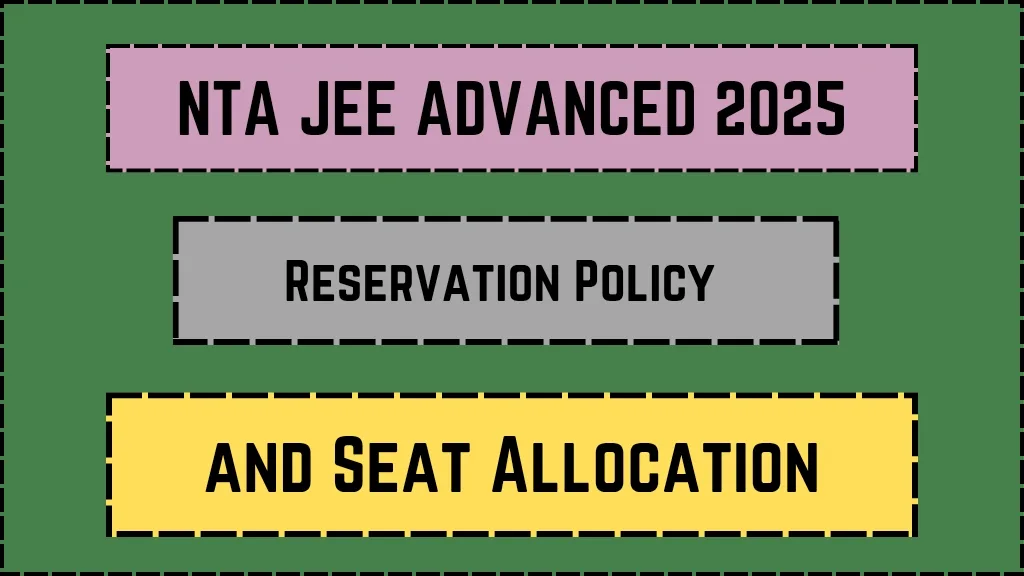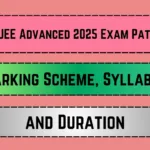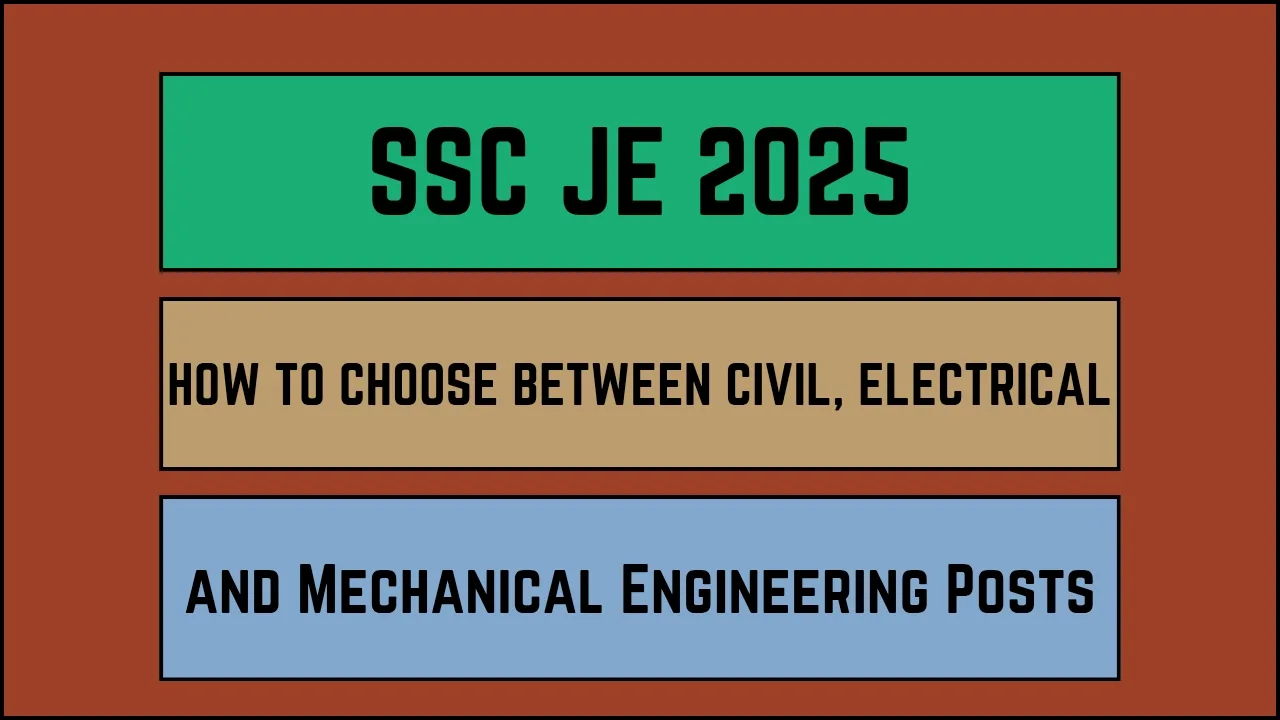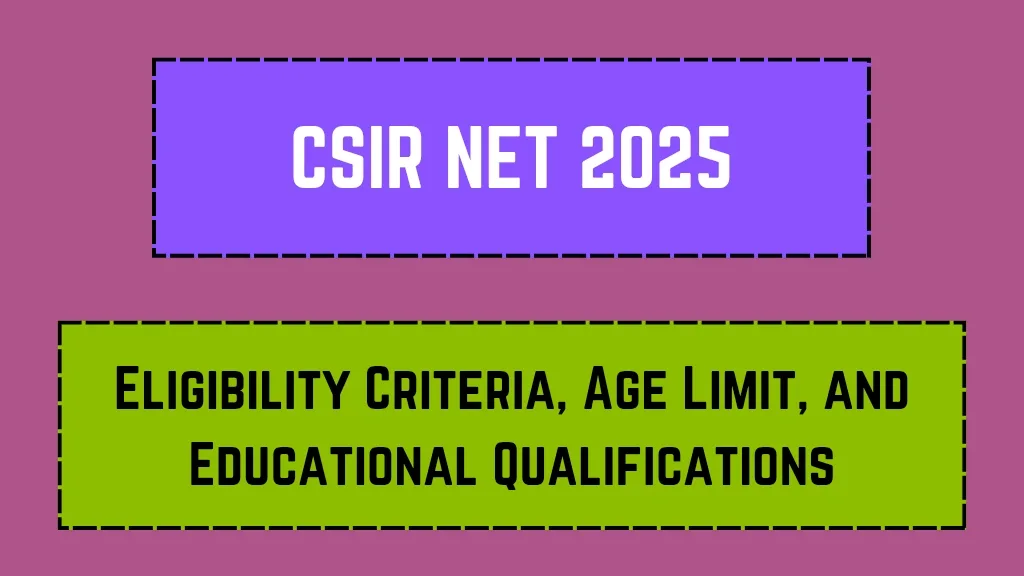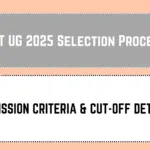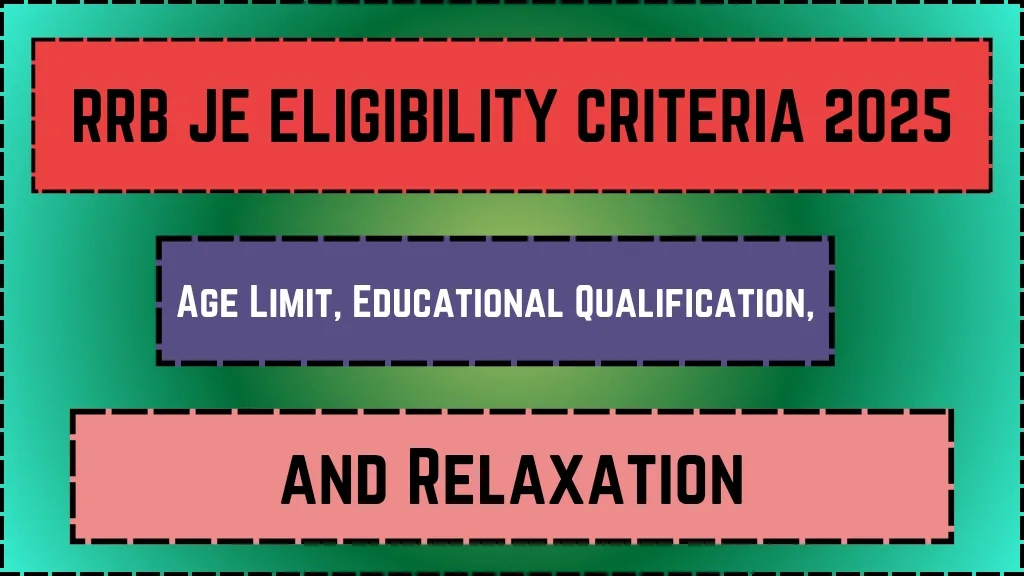The Joint Entrance Examination (JEE) Advanced 2025 is one of the most prestigious engineering entrance exams in India, conducted by the National Testing Agency (NTA).
It serves as the gateway to top-tier institutions like the Indian Institutes of Technology (IITs).
Understanding the reservation policy and seat allocation process is crucial for aspirants to plan their admission strategy effectively.
This article breaks down the key aspects of the JEE Advanced 2025 reservation system, ensuring you have all the information you need in a simple, easy-to-understand format. 🗓
Key Highlights 📌
Here’s a quick overview of the essential details about JEE Advanced 2025:
| Key Point | Details |
|---|---|
| Organization Name | National Testing Agency (NTA) |
| Exam Name | JEE Advanced 2025 |
| Conducting Body | Indian Institutes of Technology (IITs) |
| Eligibility | Top 2,50,000 rank holders in JEE Main 2025 |
| Reservation Categories | SC, ST, OBC-NCL, EWS, PwD |
| Seat Allocation Process | Based on rank, category, and availability of seats |
| Official Website | jeemain.nta.nic.in |
Reservation Policy Explained 🛑
The reservation policy for JEE Advanced 2025 ensures fair representation of all categories.
Here’s how seats are allocated across different groups:
Categories and Their Quotas
- Scheduled Caste (SC): 15% of seats are reserved for SC candidates.
- Scheduled Tribe (ST): 7.5% of seats are reserved for ST candidates.
- Other Backward Classes (OBC-NCL): 27% of seats are reserved for OBC-Non-Creamy Layer candidates.
- Economically Weaker Sections (EWS): 10% of seats are reserved for EWS candidates.
- Persons with Disabilities (PwD): 5% of seats are reserved horizontally across all categories for PwD candidates.
This policy ensures that students from diverse backgrounds have equal opportunities to secure admission in IITs.
Seat Allocation Process 🪑
The seat allocation process for JEE Advanced 2025 is a multi-step procedure that considers your rank, category, and preferences.
Steps Involved in Seat Allocation
- Registration for Counselling: After qualifying for JEE Advanced, candidates must register for the JoSAA (Joint Seat Allocation Authority) counselling process.
- Choice Filling: Candidates need to fill in their preferred courses and IITs in order of priority.
- Mock Allotment: A mock seat allotment is conducted to give candidates an idea of their likely seat allocation.
- Final Allotment: Based on the choices filled, ranks, and category, seats are allotted in multiple rounds.
- Seat Acceptance: Candidates must accept the allotted seat and complete the admission formalities.
Important Dates to Remember 🗓
Here’s a table summarizing the key dates for JEE Advanced 2025:
| Event | Tentative Date |
|---|---|
| JEE Main 2025 Exam | January 2025 |
| JEE Advanced 2025 Registration | April 2025 |
| JEE Advanced 2025 Exam | May 2025 |
| Result Declaration | June 2025 |
| JoSAA Counselling Begins | June 2025 |
Documents Required for Counselling 📄
To participate in the JoSAA counselling process, candidates must keep the following documents ready:
| Document | Purpose |
|---|---|
| JEE Advanced Admit Card | Proof of appearing for the exam |
| Class 10 Marksheet | Date of birth verification |
| Class 12 Marksheet | Academic qualification proof |
| Category Certificate | For SC/ST/OBC-NCL/EWS candidates |
| PwD Certificate | For Persons with Disabilities |
| Photo ID Proof | Identity verification |
Tips for Effective Seat Allocation Strategy 🎯
- Research Your Preferences: Before filling choices, research the courses and IITs thoroughly.
- Prioritize Wisely: List your preferred courses and colleges in order of priority.
- Keep Track of Cutoffs: Analyze previous year cutoffs to estimate your chances.
- Stay Updated: Regularly check the official website for updates on counselling and seat allotment.
Common Mistakes to Avoid ❌
- Ignoring Mock Allotment: Skipping the mock allotment can lead to poor choice filling.
- Incorrect Document Upload: Ensure all documents are uploaded correctly to avoid rejection.
- Missing Deadlines: Keep track of all important dates to avoid missing out on opportunities.
Neha Patel is a career guidance writer specializing in exam results and admit cards. With a Master’s in Human Resources and 8+ years of experience, Neha loves helping students navigate their academic journeys. She enjoys practicing yoga.

